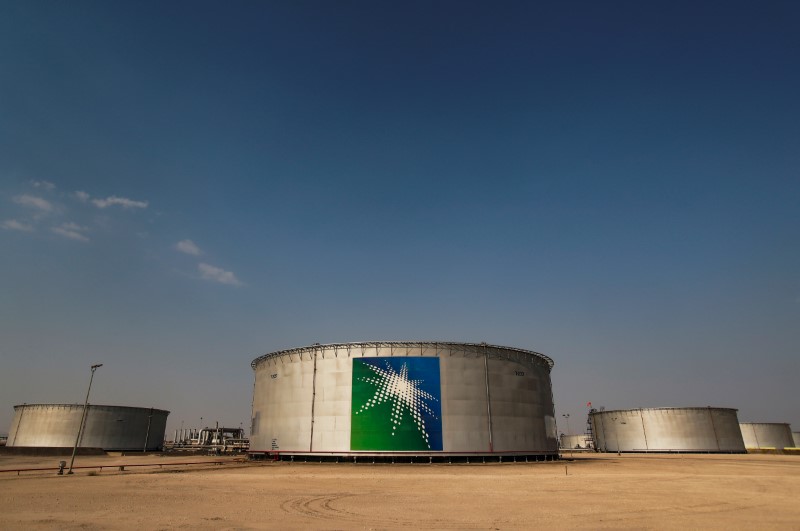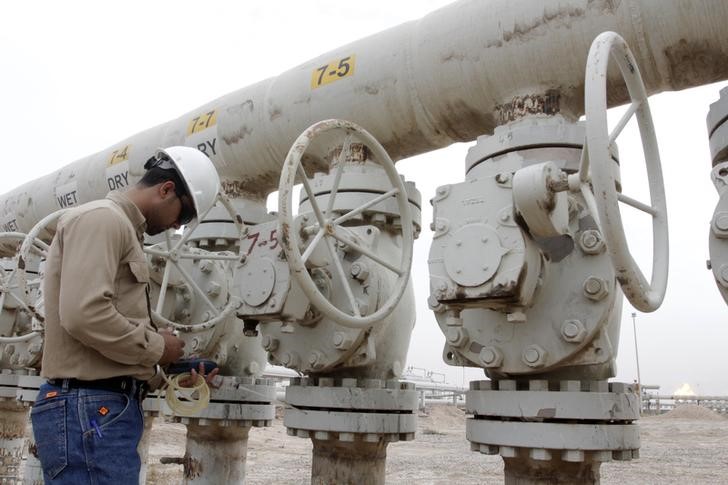By Shu Zhang
SINGAPORE(Reuters) - Top oil exporter Saudi Arabia is expected to raise its official selling price (OSP) for all grades it sells to Asia in July, to track a jump in Middle East benchmarks although overall weak refining margins could cap price gains, industry sources said.
Saudi Arabia is expected to increase the July OSP for Arab Light crude by $3.80 a barrel on average, a survey of five refinery sources showed.
Forecasts ranged from an increase of $2-$3 a barrel to as much as $5 a barrel, as refiners' margins weakened in May while a stronger DME Oman crude price, one of two underlying benchmarks for Saudi crude in Asia, has increased refiners' feedstock costs, they said.
"Refining margins actually worsened" by close to $1 a barrel in May, one of the respondents said.
The DME Oman crude price was on average about $3 a barrel more expensive than cash Dubai and Oman prices set by S&P Global Platts last month, according to Reuters calculations, pushing up costs for Asian buyers of Saudi Arabian and Kuwaiti oil.
Production from the Organization of the Petroleum Exporting Countries (OPEC), led by Saudi Arabia, fell to their lowest in two decades in May and has strengthened Middle East crude prices. OPEC and its allies including Russia are considering bringing forward a meeting to this week to discuss an extension of production cuts beyond June.
Tight Middle East crude supply has narrowed cash Dubai's prompt contango price spread by $6.60 a barrel in May from April. Spot prices are lower than those in future months in a contango market.
In addition, light crude, such as Arab Extra Light, are expected to rise more than heavier grades as gasoline and naphtha cracks have improved, two of them said.
Saudi crude OSPs are usually released around the fifth of each month, and set the trend for Iranian, Kuwaiti and Iraqi prices, affecting more than 12 million barrels per day (bpd) of crude bound for Asia.
State oil giant Saudi Aramco (SE:2222) sets its crude prices based on recommendations from customers and after calculating the change in the value of its oil over the past month, based on yields and product prices.

Saudi Aramco officials as a matter of policy do not comment on the kingdom's monthly OSPs.
